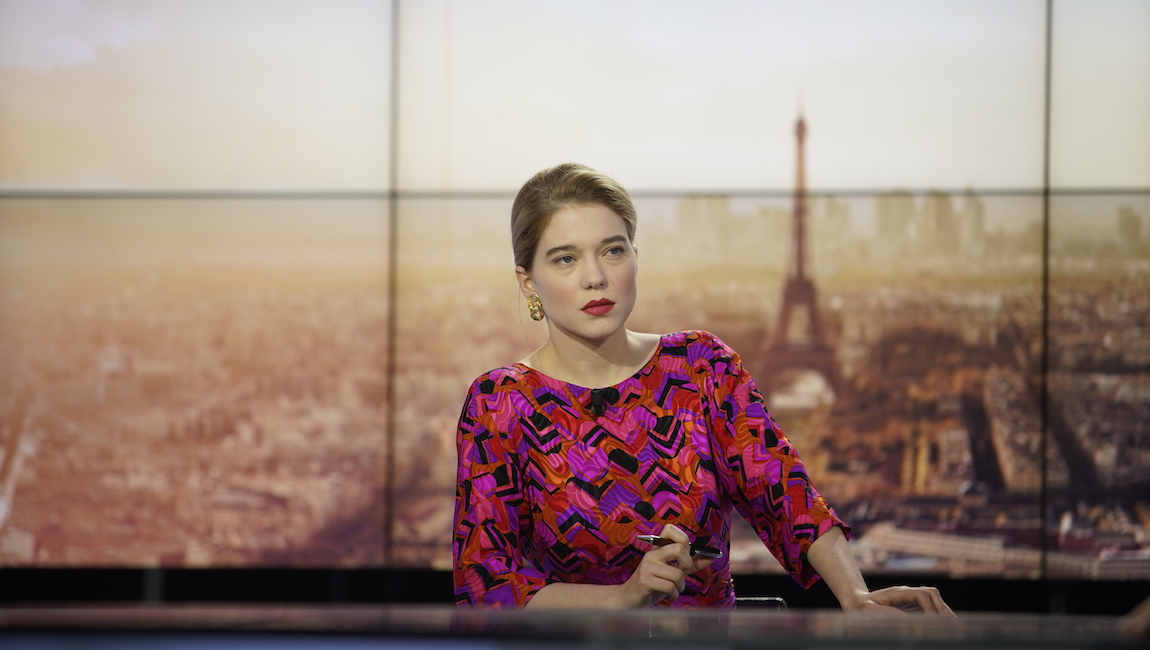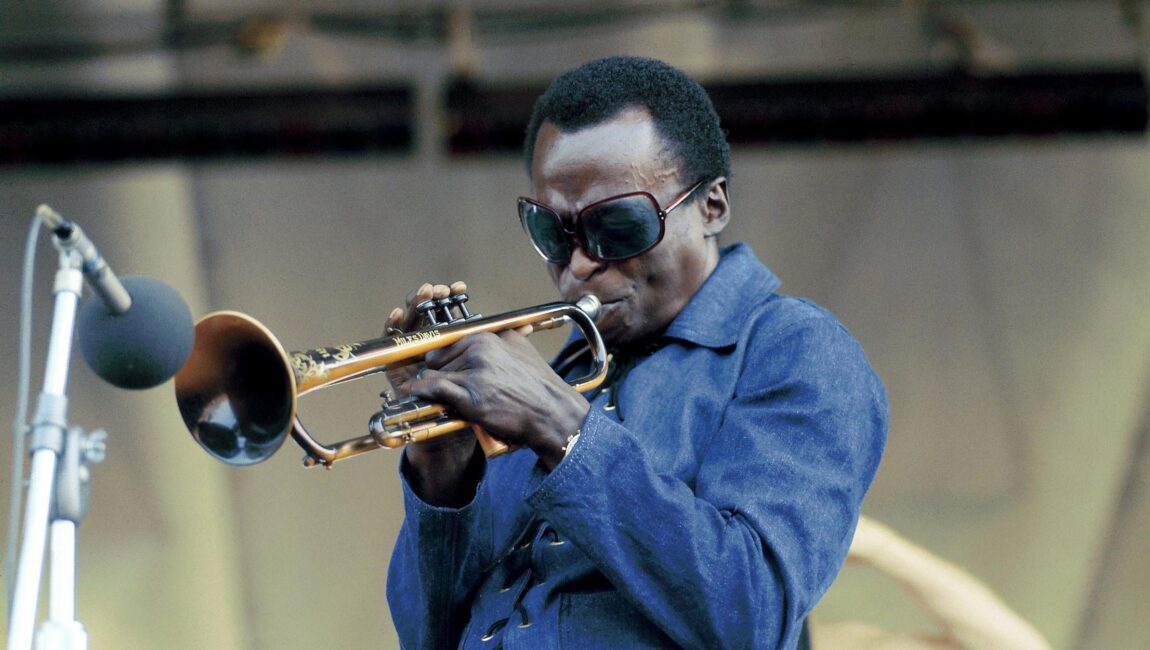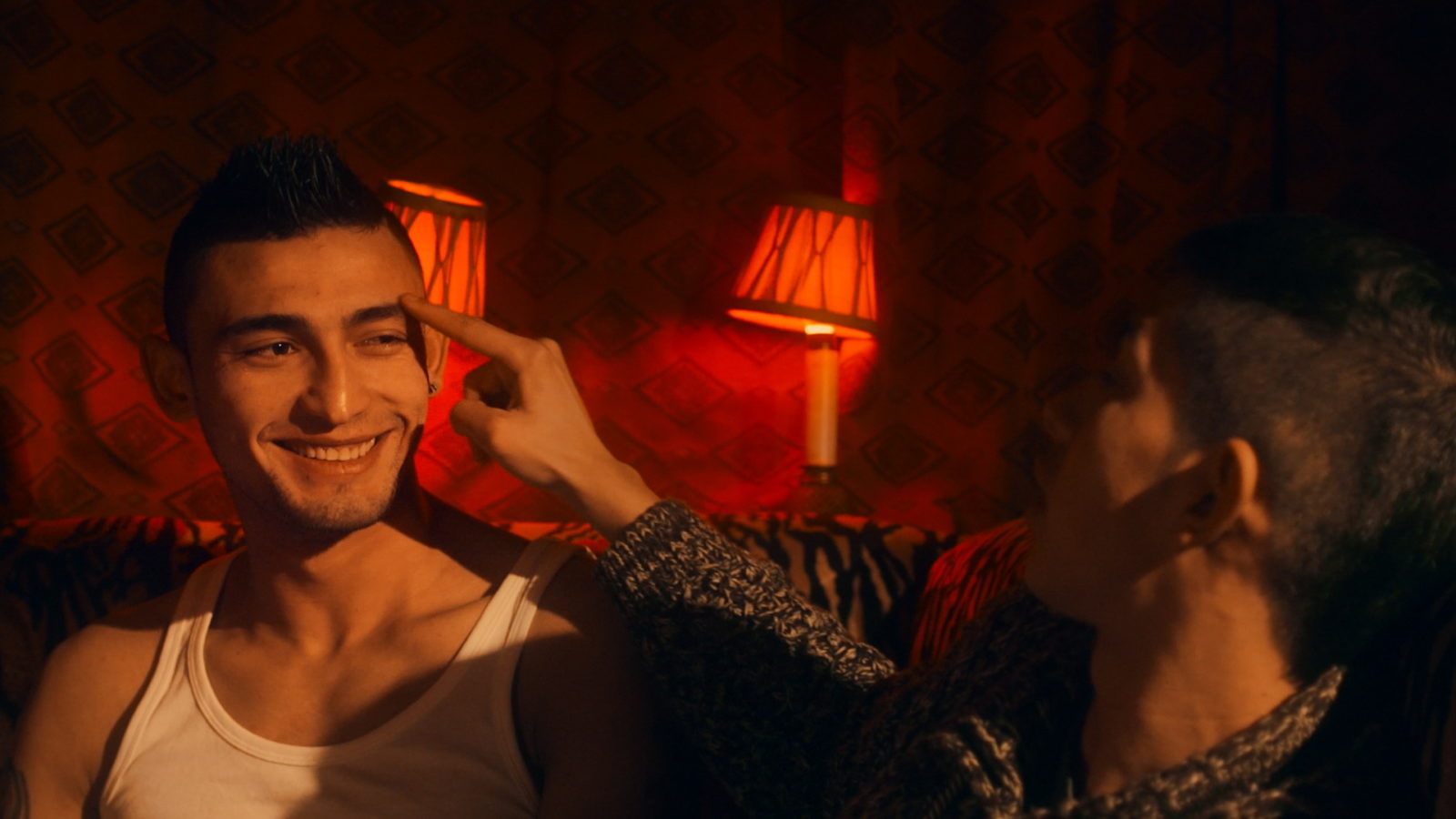It is endlessly frustrating to see Netflix continue to gobble up talented, idiosyncratic directors and spew out garbled, muddled nonsense. As critic Katie Rife recently wrote over at The AV Club, “the streaming service seems to have a knack for commissioning original films from in-demand creatives, then flattening the results into just-okay entertainment designed to replace the direct-to-video market bulldozed by streaming.” It’s a content-maw Mobius strip, and so it goes with Jim Mickle’s In the Shadow of the Moon, a just-okay entertainment that squanders a lot of good will and talent on what feels like an algorithm generated high-concept genre mash-up. For his part, Mickle has proved to be a fine director of horror films who recently pivoted to neo-noir inflected crime (Cold in July) and television (the underrated Sundance Channel original Hap and Leonard). Both of those projects inform the early parts of In the Shadow of the Moon as Philadelphia cops Locke (Boyd Holbrook) and his partner Maddox (the always welcome Bokeem Woodbine) investigate a series of baffling murders in 1988. Holbrook and Woodbine make a fine pair, with an easy going chemistry that belies the clichéd buddy cop scenario. Mickle gives everything a rain slicked veneer, with a nice dollop of authentic urban grime and cramped, small spaces bathed in neon lighting; the (presumably digital) cinematography has some actual depth to it, with deep blacks and a film-like texture. The set up for the mystery is fairly interesting, as a brief montage shows a series of unrelated people (a cook, a bus driver, a concert pianist) begin their evenings before their faces explode in geysers of chunky blood. With that, the chase is on, and eventually Locke and Maddox coroner a suspect, who somehow seems to know more about Locke and his unborn child than would seem possible. A scuffle ensues and the mysterious woman dies. Fast forward seven years, and a fresh batch of people start dying in the same unexplained way, on the anniversary of the original killings no less. Locke knows that the suspect is dead, flattened by a passing subway train back in ‘88, so how can she be in surveillance video footage shot in the then present day of 1995?
One can’t shake the feeling while watching In the Shadow of the Moonthat there are two or three different movies vying for our attention here, each of which might be interesting in its own right but none of which have time to develop or breathe when mashed all together.
If you guessed time travel, that’s a bingo, and the film almost immediately goes off the rails. There’s some pseudo-science explanation the writers give about a ‘bridge from the moon’ that exists every seven years, hence both the title of the film and it’s gimmicky structure, which locks into jumping forward every seven year – from ’88 to ’95 to 2002 and so on and so forth. It’s not a terrible idea, but Mickle can’t corral all the disparate elements together, and writers Gregory Weidman and Geoffrey Tock (both veterans of network tv shows that you don’t give a shit about) don’t do him any favors as they pile clichés and coincidences on top of the other. There are two main issues here: one is that the jump to each new time frame requires a kind of soft reboot, as the characters and settings are reintroduced and the viewer gets acclimated to how things have changed (and as the characters get older, the mediocre aging makeup does the illusion no favors). The second is that we, the audience, are aware of what’s going on long before the film’s characters are; once Locke becomes convinced that somebody is somehow traveling through time to murder people, there are a lot of scenes of him trying to convince other characters about what’s really going on. In other words, it’s a long march towards a forgone conclusion. One can’t shake the feeling while watching In the Shadow of the Moon that there’s two or three different movies vying for our attention, each of which might be interesting in its own right but none of which have time to develop or breathe when mashed all together. The performances are all quite good (despite the aforementioned dubious old age makeup), and the time travel hook is actually kind of cool in a don’t-think-about-it-too-hard kind of way. But by the time the end of the film rolls along and it’s still introducing new stuff, it just falls apart. Ultimately, the film wants to be a meditation on guilt and changing the past and familial ties and exploring the root of civil discord that’s gripping our nation. It’s too bad it doesn’t take the time to actually do any of that, instead sketching in vague, half thought-out big ideas and trying to pass them off as revelatory.







